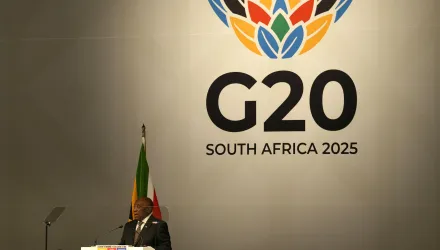A seminar with Yossi Alpher, former director, Jaffee Center for Strategic Studies, Tel Aviv University, on his book Periphery: Israel's Search for Middle East Allies.
Moderated by Professor Michael C. Hudson, MEI Visiting Scholar, Spring 2015.
How does an isolated and besieged, newly-born country project form grand strategies for survival against the enemies that encircle it? This is the story of Israel’s periphery strategy that emerged in the mid-1950s and remains relevant today to Israel’s ties in and around the Middle East.
A light breakfast will be provided.
About Yossi Alpher:
Yossi Alpher is a veteran of the Mossad and former director of the Jaffee Center for Strategic Studies at Tel Aviv University. His book “Periphery: Israel’s Search for Middle East Allies” draws extensively on his intelligence and strategic studies careers.
About Periphery:
Since its establishment in 1948, Israel has sought alliances with non-Arab and non-Muslim countries and minorities in the Middle East, as well as with Arab states geographically distant from the Arab-Israel conflict. The text presents and explains this regional orientation and its continuing implications for war and peace. It examines Israel's strategy of outflanking, both geographically and politically, the hostile Sunni Arab Middle East core that surrounded it in the early decades of its sovereign history, a strategy that became a pillar of the Israeli foreign and defense policy. This “periphery doctrine” was a grand strategy, meant to attain the major political-security goal of countering Arab hostility through relations with alternative regional powers and potential allies. It was quietly abandoned when the Sadat initiative and the emerging coexistence between Israel and Jordan reflected a readiness on the part of the Sunni Arab core to deal with Israel politically rather than militarily.Yet this periphery strategy had been internalized to some extent in Israel’s strategic thinking and it has begun to resurface as the rise of political Islam in Egypt, Turkey, Gaza, southern Lebanon and possibly Syria, coupled with the Islamic regime in Iran, has generated concern in Israel that it is again being surrounded by a ring of hostile states—in this case, Islamists rather than Arab nationalists.
By looking at Israel’s search for Middle East allies then and now, the book explores a key component of Israel’s strategic behavior. And it raises the issue of how a country perceiving itself surrounded by enemies can develop grand strategies to ensure its survival.


